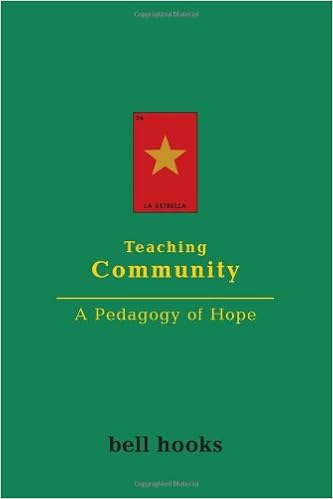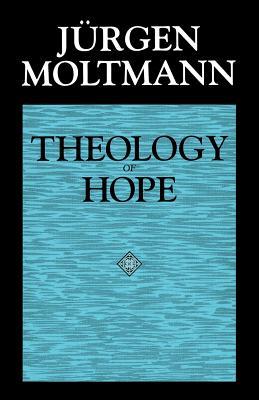This post is part of a Lenten series on bell hooks' TEACHING COMMUNITY. You can find an index of posts here.
***
The first thing to love about bell hooks is her passion for education. It bleeds through every page, trickles out of every word. It is her passion for pedagogy that leads her to write:
"There are certainly moments in the classroom where I do not excel in the art of teaching. However, it is crucial that we challenge any feeling of shame or embarrassment that teachers who do their job well might be tempted to indulge when praising ourselves or being praised by others for excellent teaching. For when we hide our light we collude in the overall cultural devaluation of our teaching vocation." (xi)
I know that, all too often, I am tempted to undercut the love and passion that I have for teaching and to undervalue what I do well in service to an idol of false humility and a (normally generative but sometimes destructive) self-critique.
In fact, hooks believes that it is imperative for educators who have successfully worked for justice and against all kinds of racism, sexism, colonialism, rampant capitalism, and homophobia to share their stories. Indeed, "we must highlight all the positive, life-transforming rewards that have been the outcome of collective efforts to change our society, especially education, so that it is not a site for the enactment of domination in any form." (xiii) These success must be highlighted in order to combat cynicism. "Both exercises in recognition, naming the problem but also fully and deeply articulating what we do that works to address and resolve issues, are need to generate anew and inspire a spirit of ongoing resistance. When we only name the problem, when we state complaint without a constructive focus on resolution, we take away hope. In this way critique can become merely an expression of profound cynicism, which then works to sustain dominator culture." (xiv)
These claims form the core of Teaching Community, because, "Educating is always a vocation rooted in hopefulness." (xiv)
This hopefulness is clear-eyed, fully aware of the both problems and possibilities.
I admit that, in practice, I have struggled with balancing these two dimensions of reality. The other day, I stumbled into the dreaded quagmire of a facebook argument. A friend posted briefly about the need to recognize that the history of slavery is at least 100 years older than most people know. A commenter attempted to highlight all the (admittedly faltering) progress that the United States has made since the era of slavery, using similar wording to hooks to advocate for focusing on all of the ways that the US is better now than it was, and better than some other nations. I replied to the comment, lifting up the even lesser known history of failed reconstruction, lynching, Jim Crow laws and mass incarceration that linger into the present day. Even as I posted, I wondered what effect my comment would have. Would it change any hearts or minds? Would it inform or simply inflame? Would it foster hope?
How do we balance critique and celebration, or (in psalmic terms) lament and praise? Certainly too much lament can lead to cynicism, despair and apathy. But too much praise can undergird ignorance, blithe indifference, and a lack of empathy. It can be all too easy to celebrate how far we have climbed the mountain while forgetting the forests we burned, and the people we left behind along the way.
Of course, those who claim to follow Christ might also root their hope in a different soil than hooks does. For hooks, hope is founded on the possibilities of our collective efforts. With the Psalmist, I want to say:
"Do not put your trust in princes,
in mortals, in whom there is no help.
When their breath departs, they return to the earth;
on that very day their plans perish.
Happy are those whose help is the God of Jacob,
whose hope is in the Lord their God,
who made heaven and earth,
the sea and all that is in them,
who keeps faith forever; w
ho executes justice for the oppressed;
who gives food to the hungry.
The Lord sets the prisoners free;
the Lord opens the eyes of the blind.
The Lord lifts up those who are bowed down;
the Lord loves the righteous.
The Lord watches over the strangers;
[God] upholds the orphan and the widow,
but the way of the wicked [God] brings to ruin." (Psalm 146:3-9)
As Jürgen Moltmann put it: "Where the bounds that mark the end of all human hopes are broken through in the raising of the crucified one, there faith can and must expand into hope...There it becomes a 'passion for what is possible (Kierkegaard), because it can be a passion for what has been made possible." (Moltmann, Theology of Hope, 20, emphasis added).
For me, this hope does not lead to quietism. It does not lead to merely waiting out the current moment. Instead it leads to action. It does so because it highlights so starkly the difference between the future that God desires for the world and the world as it is.
Indeed, as Moltmann goes on to claim, "Hope finds in Christ not only a consolation in suffering, but also the protest of the divine promise against suffering....That is why faith, wherever it develops into hope, causes not rest but unrest, not patience but impatience. It does not calm the unquiet heart, but is itself this unquiet heart in [us]. Those who hope in Christ can no longer put up with reality as it is, but begin to suffer under it, to contradict it....the goad of the promised future stabs inexorably into the flesh of every unfulfilled present....This hope keeps [us] unreconciled, until the great day of the fulfilment of all the promises of God. It keeps [us] in statu viatoris [in a pilgrim state], in that unresolved openness to world questions which has its origin in the promise of God in the resurrection of Christ and and can therefore be resolved only when the same God fulfils [God's] promise. This hope makes the Christian Church a constant disturbance in human society." (21-2)
Resonating with hooks' claims, Moltmann relies upon Joseph Pieper to chart the course for hope as the middle way between presumption—"a premature, selfwilled anticipation of the fulfilment of what we hope for from God"—and despair—"the premature, arbitrary anticipation of the non-fulfilment of what we hope for from God." (23) Both of these are not hope because they "cancel the wayfaring character of hope." (23) They go too fast and stop too soon. Hope keeps open possibility and thus sets "everything in motion and keep[s] it in a state of change." (25) This dynamic of hope echoes what hooks likes to call "radical openness."
Being attentive to hope, then, will not be easy or simple. But, with hooks, "I hope to illuminate the space of the possible where we can work to sustain our hope and create community with justice as the core foundation." (hooks, Teaching Communtiy, xvi) And, as a follower of Christ, I know that "my hope is built on nothing less than Jesus' blood and righteousness....When all around my soul gives way, he then is all my hope and stay."
What do you say? How do we chart the course between presumption and despair?
*****
NOTE: I encourage thoughtful, impassioned conversation in the comments below. I do not say, "civil," because I think this sometimes connotes "dispassionate." But I would ask that those who comment attempt to engage with thought and reflection. I do reserve the right to delete any comment that I consider harmful. The point is a passionate and meaningful conversation, which means, for me, neither stilted dialogue nor combative debate.



No comments:
Post a Comment